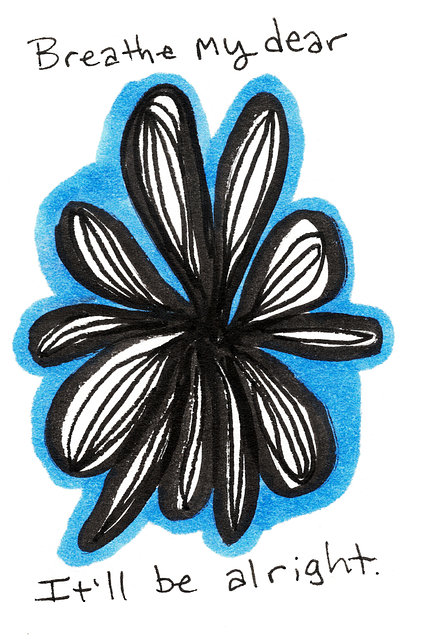Denver German Speaking Therapy groups thrive on skilled facilitators creating safe, culturally sensitive environments for active participation. Through clear communication, confidential support, and evidence-based techniques like journaling exercises and mental wellness coaching, these groups address specific needs, enhance well-being, and foster a sense of community. Structured assessments and multi-faceted approaches ensure positive outcomes, tracking progress and incorporating innovative tools like podcast series to promote deeper connections and improved stress management.
Mental wellness group facilitation plays a pivotal role in enhancing the therapeutic experience, especially within communities like Denver’s diverse German-speaking population. This article explores effective strategies for facilitating supportive therapy groups. We delve into creating safe spaces, employing communication techniques that foster trust, integrating therapeutic methods tailored to group dynamics, and measuring successful outcomes. By understanding these techniques, professionals can significantly impact the mental health journey of Denver German-speaking individuals.
- Understanding the Role of Group Facilitation in Mental Wellness
- Creating a Safe and Supportive Environment for Denver German Speaking Therapy Groups
- Effective Communication Strategies for Group Facilitators
- Incorporating Therapeutic Techniques into Group Sessions
- Measuring and Enhancing Group Therapy Outcomes
Understanding the Role of Group Facilitation in Mental Wellness

In the realm of mental wellness, group facilitation plays a pivotal role in fostering supportive environments where individuals can navigate their journeys towards healing and growth. As a professional in Denver German-speaking therapy, understanding this dynamic is essential. Group sessions create a unique space for participants to share experiences, gain different perspectives, and build a sense of community—all of which are crucial components of effective mental healthcare. Through skilled facilitation, therapists can guide conversations, promote active participation, and address specific concerns related to issues such as trauma support services or mood management, ensuring every member feels heard and supported.
Cultural sensitivity in mental healthcare practice is another key aspect that facilitates meaningful connections within the group. Recognizing and respecting diverse backgrounds and experiences empowers individuals to open up about their struggles, allowing for a more inclusive and effective therapeutic environment. This approach not only enhances the overall mental wellness of participants but also ensures that specific cultural considerations are integrated into the healing process, ultimately improving outcomes for all involved, particularly in a multicultural city like Denver.
Creating a Safe and Supportive Environment for Denver German Speaking Therapy Groups

Creating a safe and supportive environment is paramount when facilitating Denver German Speaking Therapy groups. This involves cultivating an atmosphere where participants feel seen, heard, and respected. As a mental health professional, establishing clear boundaries, ensuring confidentiality, and actively practicing active listening are key elements of risk management planning for mental health professionals. By fostering open communication, facilitators can encourage members to share their experiences without fear of judgment.
Additionally, integrating crisis intervention guidance within the group setting empowers individuals to navigate challenging emotions effectively. Facilitators should be prepared to handle potential crises and have access to relevant resources and self-care practices to support both themselves and the group members. This holistic approach not only enhances the overall therapeutic experience but also ensures the well-being of everyone involved in the Denver German Speaking Therapy groups.
Effective Communication Strategies for Group Facilitators

Effective communication is a cornerstone for successful group facilitation, especially in a diverse setting like Denver German speaking therapy groups. Facilitators play a vital role in fostering an open and supportive environment where every member feels heard and valued. One key strategy is active listening—facilitators should give their full attention to speakers, paraphrase their points, and ask clarifying questions to ensure understanding. This not only encourages participants to share more but also demonstrates empathy and respect for their experiences.
Additionally, using clear and inclusive language is essential. Facilitators should avoid jargon or complex terms that might confuse members. Incorporating simple, positive messaging can boost the group’s overall mood and promote a sense of belonging. For instance, encouraging participants to focus on their strengths and practicing gratitude through self-awareness exercises can enhance positive thinking. Mind over matter principles can be applied to help individuals reframe negative thoughts, ultimately leading to improved mental wellness.
Incorporating Therapeutic Techniques into Group Sessions

Incorporating therapeutic techniques into group sessions is a powerful strategy to enhance mental wellness among participants, especially in a Denver German-speaking therapy context. Facilitators can create a safe and supportive environment by integrating various evidence-based practices. For instance, encouraging group members to engage in Mental Wellness Journaling Exercises can provide them with a private space to reflect on their emotions and thoughts, fostering self-awareness and personal growth. This practice is particularly beneficial for individuals who may feel more comfortable expressing themselves in writing compared to verbal discussions.
Additionally, incorporating mental wellness coaching programs developed specifically for group settings allows for structured guidance and peer support. These programs can include risk assessments tailored for mental health professionals to ensure the well-being of both facilitators and participants. By combining such techniques, group facilitation becomes an effective tool for managing and improving mental health, catering to diverse needs within a supportive German-speaking community in Denver.
Measuring and Enhancing Group Therapy Outcomes

Measuring and enhancing group therapy outcomes is a critical aspect of effective mental wellness facilitation, especially in Denver German-speaking therapy settings. By employing structured assessment tools and regular feedback mechanisms, therapists can gain valuable insights into the progress and satisfaction levels of participants. This data-driven approach allows for tailored adjustments to the group dynamics and therapeutic strategies, ensuring that each individual receives the most relevant support.
Emotional well-being promotion techniques, such as those incorporated into a Mental Wellness Podcast Series Production, can further complement traditional therapy methods. Engaging content, interactive discussions, and peer support within these podcasts create an additional safe space for individuals to explore and enhance their mental health. This multi-faceted approach not only measures but also actively contributes to positive group therapy outcomes, fostering deeper connections, increased self-awareness, and improved stress management skills among participants.
Mental wellness group facilitation plays a pivotal role in enhancing the therapeutic experience for individuals seeking support, especially within the context of Denver German-speaking therapy groups. By fostering a safe and supportive environment, facilitators can encourage open communication and facilitate meaningful connections among group members. Utilizing effective communication strategies and incorporating diverse therapeutic techniques, facilitators empower participants to navigate their mental health journeys collaboratively. Regularly assessing and enhancing group therapy outcomes ensures that these sessions remain impactful, catering to the unique needs of each participant within this specialized Denver German-speaking therapy setting.








